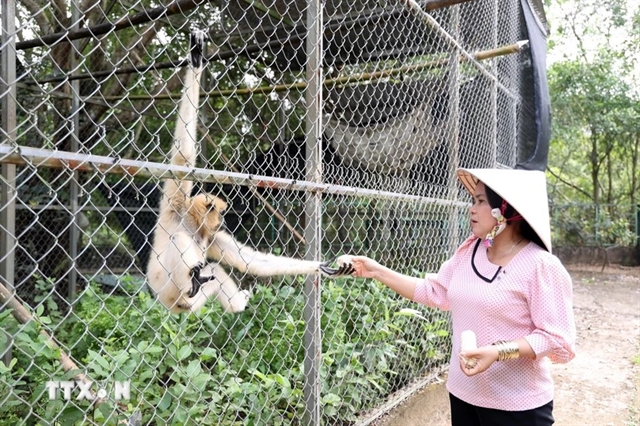 Society
Society

Phạm Thị Hồng Nga is proud of the roses she grows in the northern city of Thái Nguyên using organic farming methods.
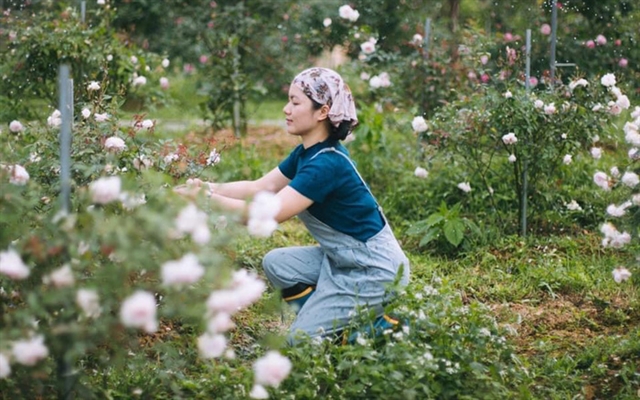
|
| Rose farm owner Phạm Thị Hồng Nga tends to her roses. — Photo courtesy of UniRose Farm |
THÁI NGUYÊN — Phạm Thị Hồng Nga is proud of the roses she grows in the northern city of Thái Nguyên using organic farming methods.
Nga, born in 1978 in Đồng Quang Ward, Thái Nguyên City, used to work as a physics teacher at a college in the city. After school, she used to sell flowers to earn some extra money.
At that time, Nga didn't think that one day, her life would be full of roses, literally.
Now, she has a farm with about 2,000 old rose plants, a flower-themed restaurant and cafeteria and a workshop where she makes rose water.
“I want my roses to bring aromas to life and beautify people,” she said.
“When I opened my small flower stall, I got the chance to meet other rose lovers who were pretty demanding customers, asking for the most beautiful and freshest roses,” she said.
Her customers also sought her advice to keep their flowers fresh for longer, so she started reading and learning about nurturing roses.
As her customer base grew, Nga started thinking about investing in a garden which people could visit and choose their flowers.
In 2017, Nga made that plan become a reality by opening UniRose – a farm with hundreds of old Sapa rose plants in Đức Thịnh Commune, Thái Nguyên City.
In September this year, Nga moved the rose farm to Quyết Thắng Commune - an area with more fertile soil and fresh air.
“At that time, growing roses was new to me, so I had to learn and accumulate experience day by day," she said.
Nga said that from the start she wanted to use organic techniques so people could safely touch the flowers and use their derived products. She minimises the use of chemical fertilisers, pesticides and products that boost growth.
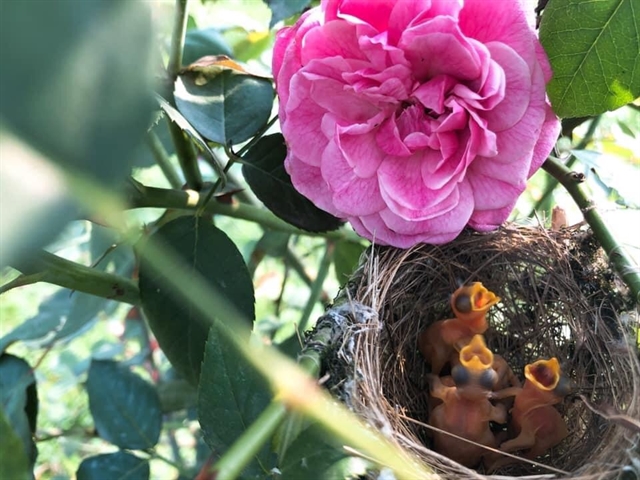
|
| A rose and baby birds in Nga's rose garden. — Photo courtesy of UniRose Farm |
“Growing organic products involves many factors including seedlings, nursing and fertilising. Many people told me that it was difficult to grow roses. I told them that the plants they had bought had been fertilised to boost their growth, so they looked nice but died quickly.
Organic plants were thinner but stronger, Nga proudly said about her roses.
Nga said that she quit teaching two years ago to focus on her passion.
The rose water toner she produces now receives a lot of positive feedback from her regular buyers.
“It’s the customers who encouraged me to produce organic and safe products from my roses,” Nga said.
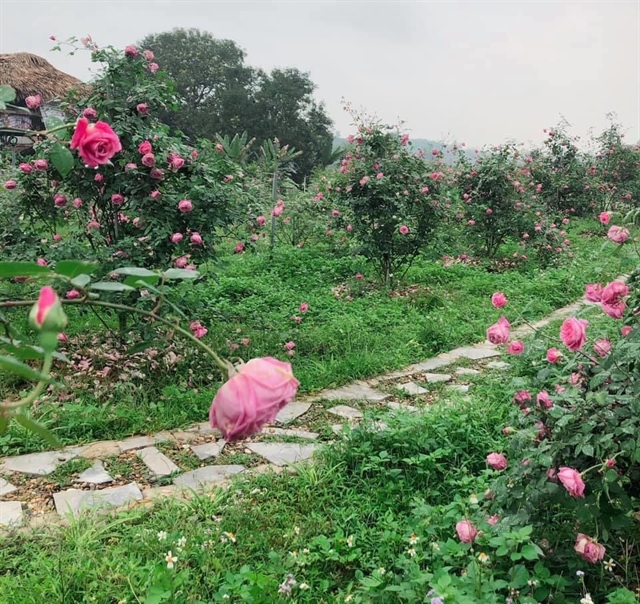
|
| Part of Nga's rose farm. — Photo courtesy of UniRose Farm |
When she decided to expand her farm and business, she had no idea of the difficulties she would face, such as buying more equipment, paying for skilled workers and learning about business management.
However, she did not give up.
Besides her current businesses, Nga wants to make her rose farm a destination for children to experience farming and outdoor activities.
“I used to be a teacher. I always want to work for children,” she said, adding that she wanted to make her rose farm different from others.
“I offer free visits so students can have a good time at my farm,” she said.
In addition to roses, they can try other farming techniques such as nursing baby plants, harvesting fruit and collecting tea leaves. Tea is a typical product of Nga’s hometown – Thái Nguyên Province.
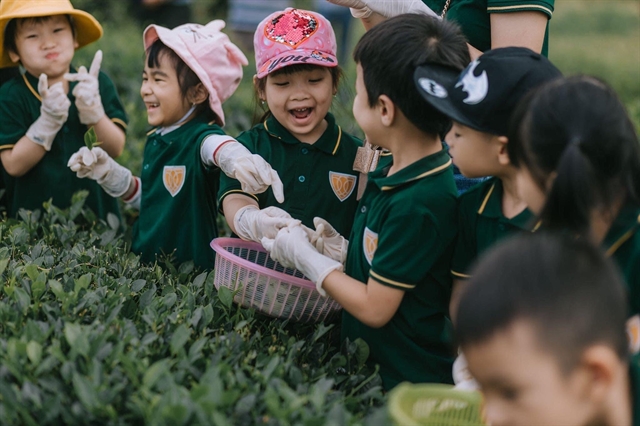
|
| Children visit Nga's farm and take part in outdoor activities including picking tea. — Photo courtesy of UniRose Farm |
“I am a kind of a work addict,” Nga said, adding that she hardly rested apart from when she was ill and had to stay in bed.
"I am a true farmer at heart. I have experience working in the rain or the heat. I often hurt myself on the thorns, but despite the hardship and difficulties nothing can stem my passion for roses,” she said.
Loans to grow
Ten years ago, Nga found about preferential loans being offered by the Tình Thương One Member Limited Liability Microfinance Institution (TYM) set up by the Việt Nam Women’s Union.
With her modest savings of VNĐ2.2 million (US$93), Nga borrowed VNĐ10 million ($430) from TYM to open her flower stall.
Nga said she could not remember how many times she had applied for loans from TYM. From VNĐ10 million, now Nga is eligible for a loan of up to VNĐ50 million – the highest sum TYM offers its customers.
The loans have helped lessen the burden when more investment is needed to expand the business.
Now she employs 3-5 seasonal gardeners and employs six people as storekeepers, paying them VNĐ3-10 million monthly.
Last March, Nga established the Rose Co-operative that specialises in organic rosewater toner.
She was also named among 68 winners at the Women’s Start-up Contest organised by the Việt Nam Women’s Union.
Over 920 start-up projects launched by women across Việt Nam took part in the contest. Nga won the award for innovative links that benefitted the community.
Chairwoman of Thái Nguyên City's Women's Association Lê Thị Ngọc Hoa said that Nga’s business and farming model was clever, creative and innovative.
TYM general director Nguyễn Thị Thu Hiền said that Nga was one of two TYM members who had won start-up prizes this year.
Hiền said with the preferential loans TYM offered, many women across Việt Nam had been given the chance to thrive, start or expand their businesses.
Modest loans, preferential interest rates and flexible payment plans were the advantages offered by TYM loans, she said. — VNS









.jpg)